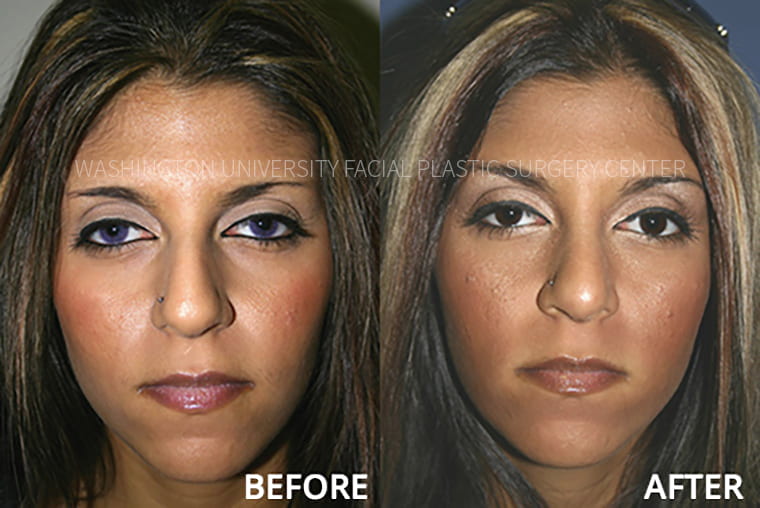Liposuction Bellevue: Sculpt Your Body with Top Plastic Surgeons
Liposuction Bellevue: Sculpt Your Body with Top Plastic Surgeons
Blog Article
A Deep Study the Typical Validation for Looking For Cosmetic Surgical Procedure: Unloading the Desire for Modification and Self-Improvement
The motivations behind the quest of plastic surgery expand past simple aesthetic enhancement, reflecting a nuanced interaction of societal assumptions, personal goals, and psychological aspects. As people significantly seek to straighten themselves with prevailing beauty requirements, it becomes important to take a look at the underlying reasons that compel them to make such considerable modifications. The impact of media portrayals and individual narratives can not be neglected, as they form understandings and desires in extensive means. This examination triggers vital inquiries concerning the honest effects and future trajectories of aesthetic treatments, inviting further expedition right into the intricacies of self-improvement and identification.
Societal Stress and Charm Standards

The influence of these charm ideals can be extensive, instilling a feeling of inadequacy in those who do not conform. As a result, numerous might seek plastic surgery as a means of aligning their appearance with these social assumptions. mommy makeover bellevue. This desire for conformity can stem from a broad range of motivations, consisting of the goal for enhanced social status, boosted enchanting prospects, or increased professional opportunities
In addition, these pressures are not limited to particular demographics; they impact individuals throughout different ages, sexes, and histories, highlighting the pervasive nature of appeal standards. This prevalent influence raises important questions about the principles of plastic surgery and the ramifications of societal requirements on specific selections. Eventually, understanding these pressures is important for promoting a more inclusive interpretation of elegance that celebrates variety.
Personal Experiences and Transformative Stories
Several individuals who undertake cosmetic surgery report transformative experiences that prolong beyond mere physical modifications. For several, these treatments work as a catalyst for enhanced self-esteem and a restored sense of identity. Clients often describe feeling freed from enduring insecurities, bring about increased confidence in both individual and specialist realms.
Take, as an example, the story of a young woman that underwent boob job after years of sensation uncomfortable about her look. Post-surgery, she reported not just a newly found convenience in her body yet additionally a significant improvement in her social life and career opportunities. Likewise, a middle-aged guy that selected to undergo a renovation shared just how the treatment revitalized his expectation on life, triggering him to pursue new passions and relationships.
These personal narratives emphasize the profound influence cosmetic surgery can have on individuals' lives. As they embrace their transformed selves, many discover empowerment in their options, typically using their experiences to influence others considering similar journeys. Inevitably, these transformative tales highlight the multifaceted reasons people look for plastic surgery, intertwining individual growth with the quest of visual improvement.
Emotional Elements Behind Cosmetic Surgical Procedure
Various psychological variables add to the choice to go through plastic surgery, reflecting much deeper emotional and psychological health and wellness considerations. Individuals commonly seek medical improvements as a way to address sensations of insufficiency, reduced self-confidence, or frustration with their appearance. These psychological inspirations can be rooted in previous experiences, social contrasts, or personal goals.
Body image distortion is read here a common concern, where individuals regard their physical attributes in an exaggeratedly negative light. This distortion can cause compulsive ideas concerning perceived flaws, prompting the need for surgical change as an option - mommy makeover bellevue. In addition, the quest of perfection and social pressures can intensify these sensations, pushing people toward cosmetic procedures in hopes of achieving an idyllic version of themselves
Furthermore, the idea of self-improvement plays a critical role. Several people view cosmetic surgery as a pathway to enhance their high quality of life, believing that improved appearance will certainly lead to increased social approval, much better connections, or boosted job opportunities. Eventually, the psychological elements behind plastic surgery underscore the complex interaction between individual self-perception and external impacts, revealing the multifaceted nature of the desire for change.

The Duty of Media in Assumption
In today's culture, media plays a pivotal role fit assumptions of charm and self-respect. With various platforms-- social media, television, and marketing-- idyllic standards of elegance are usually disseminated, affecting individual goals and self-image. These portrayals frequently stress narrow definitions of navigate to this site beauty, predominantly including youthful, slim, and electronically enhanced pictures, which can produce impractical standards for individuals striving to adjust.
The impact of media is additional exacerbated by the pervasive nature of social media sites, where customers are bombarded with curated content that highlights aesthetic improvements, supporting a society of contrast. This consistent direct exposure can lead to sensations of insufficiency amongst audiences, motivating them to think about cosmetic surgical treatment as a method of attaining the perceived perfect. Research study shows that people that engage with these media depictions are most likely to reveal dissatisfaction with their appearance, strengthening the wish for medical treatments.
In addition, the normalization of plastic surgery in media stories can desensitize audiences, mounting such procedures as commonplace and even needed for social acceptance. Hence, the media's portrayal of appeal not just influences individual choices regarding plastic surgery yet likewise adds to a more comprehensive societal discussion regarding self-worth and identity.
Moral Factors To Consider and Future Trends
In the middle of the expanding appeal of plastic surgery, ethical considerations bordering the method have actually come to be progressively noticeable. As the need for treatments rises, so as well do concerns concerning notified approval, the psychological motivations of individuals, and the possibility for exploitation by doctors. It is important for professionals to make sure that clients fully comprehend the benefits and risks, in addition to the ramifications of their options, to promote a responsible approach to cosmetic enhancements.
In addition, the influence of social media and charm standards questions regarding the influence on mental health and wellness, especially amongst vulnerable populaces. As understanding of body image problems expands, ethical method requires a mindful analysis of the inspirations behind surgical interventions. Cosmetic surgeons should balance patient wishes with ethical obligation, making certain that decisions are rooted in authentic self-improvement as opposed to societal pressures.

Final Thought
In final thought, the pursuit of cosmetic surgical treatment is influenced by a convergence of social stress, individual experiences, and emotional aspects. The need for placement with prevailing elegance requirements, coupled with the capacity for transformative outcomes, underscores the complex inspirations driving people toward these procedures. Moreover, the function of media in forming understandings of appeal can not be understated. As ethical factors to consider evolve, future trends he said in cosmetic surgical procedure will likely reflect recurring social dialogues surrounding self-improvement and private identity.
Often, social stress and prevailing appeal standards play a considerable role in individuals' decisions to go after cosmetic surgery. Inevitably, these transformative stories highlight the complex factors people seek cosmetic surgical treatment, intertwining individual growth with the search of aesthetic improvement.
Several individuals check out cosmetic surgery as a path to improve their top quality of life, thinking that enhanced appearance will lead to boosted social approval, far better connections, or improved occupation possibilities. Inevitably, the psychological aspects behind cosmetic surgical procedure emphasize the intricate interaction in between private self-perception and outside influences, revealing the multifaceted nature of the desire for change.
As honest considerations develop, future trends in cosmetic surgical treatment will likely show continuous social discussions surrounding self-improvement and private identity.
Report this page